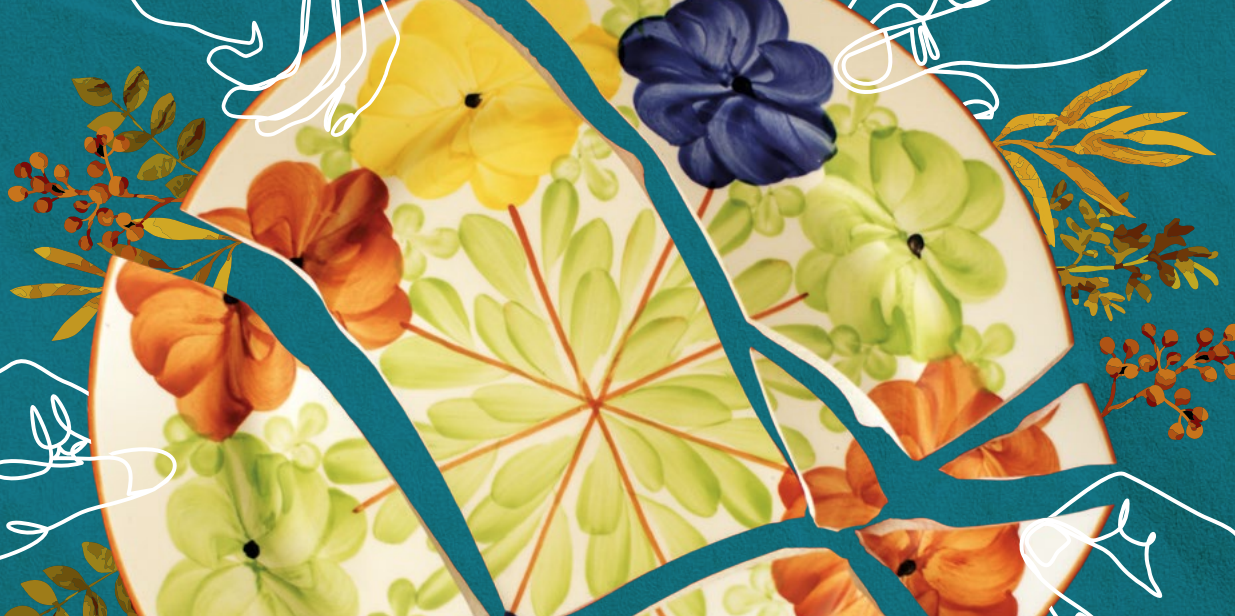Author: Lina Pinto García, member of the Board of Directors of the Prolongar Foundation and interdisciplinary academic trained in biological sciences, anthropology and journalism. She holds a PhD in Science, Technology and Society (STS) from the University of York (Canada) and is currently part of the Interdisciplinary Centre for Development Studies (CIDER) of the Universidad de los Andes as a postdoctoral researcher.
In Colombia, the news reminds us daily of the importance of continuing to bet on the construction of peace with the aim of overcoming a long and unfinished concatenation of violence. With the peace negotiations and the agreement signed in 2016 by the government and the FARC, the efforts of communities, organizations, institutions and individuals to understand and remember what has happened to us, identify those responsible, heal the wounds and dignify the victims have multiplied and diversified significantly. In this transitional context, resorting to art has become important for many of these initiatives, mainly because such a strategy contemplates the use of non-verbal languages and appeals to the mental/cognitive and emotional sphere of people.
The Prolongar Foundation is one of the organizations that has most seriously and consistently explored the contribution that methodologies based on creativity and the arts can make to processes of memory and reconciliation. His most recent book, Art to Reconstruct: An Exploration of the Multiple Possible Reconciliations, is an aesthetic commitment to publicize the conceptual and methodological developments that the Foundation has accumulated in recent years. It describes a working model where, through artistic practices and languages, victims and ex-combatants of the armed conflict go through reconciliation processes at the individual and interpersonal levels. Likewise, the methodology is nourished by the work of Jean Paul Lederach to generate so-called improbable encounters, since they carefully bring together groups of people considered adversaries under the logics of armed conflict in order to resignify the past and transform relations.
With whom does this work dialogue?
The Foundation expects the book to become “an important reference for the formulation of public policies and civil society projects that seek to integrate” the worlds of peace and art (Fundación Prolongar, 2020, p. 136). Additionally, the work emphasizes the need and the great challenge of building adequate monitoring and evaluation instruments that allow accounting for the results of this type of methodologies in reconciliation processes. With this, the text indicates that peace through art is a field of work scarcely systematized in Colombia, which suggests that there are few cases in which we have a detailed description and a theoretical and conceptual analysis of the methodologies used. Likewise, there seems to be a greater concern for exalting the successes than for documenting the trial and error processes through which evaluation methodologies and instruments are refined.
Without the above, it is difficult to generate a dialogue between the different experiences developed throughout the country that allows both collective learning and the transfer of practices and knowledge from one organization to another. Likewise, without delving into the judicious documentation of these experiences, it is unlikely that conversations and exchanges will be established between the lessons learned in Colombia and initiatives from other contexts also affected by stories of armed violence. Hence the importance of finding and becoming an intellectual home – a field of knowledge and practice – that allows local experiences to be articulated to broader networks and discussions about the what, why and how of art-based peacebuilding.
In dialogue with the Humanities in Health
The Health Humanities could offer a fruitful space to promote exchanges on the therapeutic use of the arts and humanities in the pursuit of individual and collective well-being in a transitional context. This is a field that has been gaining strength over the past thirteen years through interdisciplinary, inclusive, compassionate, and non-hierarchical ways of putting creativity, imagination, and art at the service of health (Crawford, 2020). In the Humanities in Health, aesthetics, experiential, social relations and interpretive methods take on much more importance than quantitative and/or biomedical ways of improving and evaluating the physical and emotional state of people and communities. Starting from a creative approach to public health, this field proposes a broad and non-disciplinary way of conceiving care, health and well-being, which departs from conventional and medical-scientific ways of understanding these areas. In addition, when applied to post-conflict scenarios, the Humanities in Health offer the possibility of individually and collectively exploring traumatic and violent experiences that, by definition, are complex, difficult and demand attention to nuances (Meineck, 2020).
Undoubtedly, what the book Art to Reconstruct raises resonates with many of the approaches and ways of thinking and doing proposed by the Humanities in Health. Perhaps this field can offer a space for thought, practice and exchange for the contributions of the Prolongar Foundation and organizations that carry out related work to dialogue and transcend their bets and achievements. In my opinion, the construction of peace through art in Colombia could find in the humanities in health a generous and creative intellectual home to continue growing and contributing to the difficult and necessary task of overcoming violence.
References and bibliography
Crawford, P. (2020).Global health humanities and the rise of creative public health. In: Crawford P, Brown B, and Charise A (eds.) The Routledge Companion to Health Humanities. Abingdon, Oxon ; New York, NY.
Prolong Foundation (2020). Art to Reconstruct: An Exploration of the Multiple Possible Reconciliations. Bogotá: Punto Aparte Editores. Available in: https://fundacionprolongar.org/wp-content/uploads/2020/09/Libro-FP-Versi%C3%B3n-Digital.pdf (accessed October 15, 2020).
Meineck, P. (2020). Post-conflict resolution and the health humanities. In: Crawford P, Brown B, and Charise A (eds) The Routledge Companion to Health Humanities. Abingdon, Oxon ; New York, NY.
